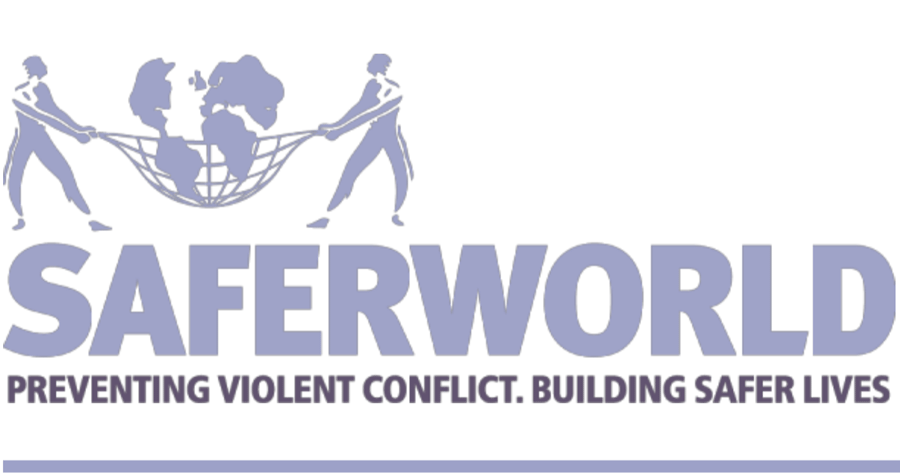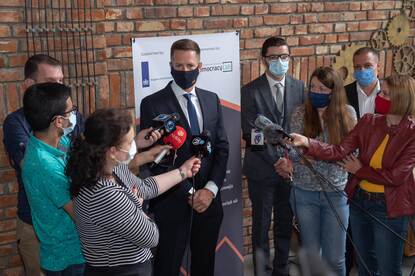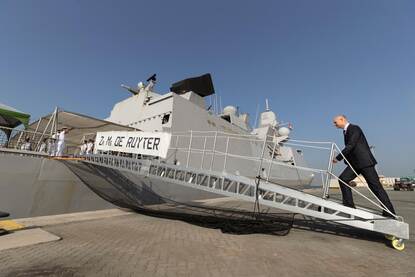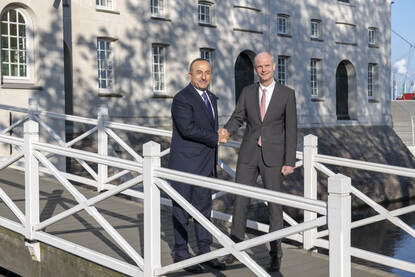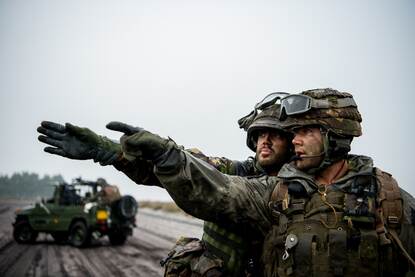Tekst Merlan van Laake
Het ministerie van Buitenlandse Zaken zet zich in voor juiste controle op de uitvoer van militaire goederen door staten. Ook veel NGO’s zetten zich in voor een effectief internationaal wapenexportcontroleregime. De Veiligheidsdiplomaat interviewde Roy Isbister van Saferworld over de rol die NGO's spelen in het debat over wapenexportcontrole.
Leestijd: 3 minuten
What sparked your own personal interest in arms (export) control?
In the early 1990s I spent close on a year as a “slow tourist” in West Africa. While there, by chance I picked up and read a book entitled “The Death Lobby: How the West Armed Iraq”, by Kenneth Timmerman. At the same time as I kept bumping into refugees on the run from the war in Liberia, with terrible tales to tell. My interest in the harm caused by irresponsible arms flows was thus born, and just kind of got stuck.
You are part of the Saferworld's Arms Unit. In what way does Saferworld try to move forward the debate on arms (export) control?
Saferworld does not have any fundamental philosophical objection to the international trade in conventional arms per se. Our upset lies with arms transfers that result in or contribute to a number of negative consequences, such as violations of international humanitarian or human rights law. We therefore seek to help “responsibilise”, rather than end, the arms trade. Drawing upon predominantly open sources, working both nationally and internationally, we work to identify weaknesses in existing systems, policies, mechanisms and practices, develop pragmatic step-by-step recommendations for how to address those weaknesses, and then with partners from around the world advocate with governments and parliaments.
How does COVID-19 influence the role of NGOs in the international debate on arms (export) control?
COVID has made the job of NGOs more difficult. Two examples: funding and access. Funding, already parlous, has become desperately fragile. Access is much more complicated – in-person contacts have been massively reduced, compromising opportunities for in-depth engagement, even with those who might enthusiastically welcome NGO engagement. And for those decision-makers, officials and politicians who are less keen on or even antagonistic towards NGOs, it has become much easier to “hide”. NGOs are having to come up with new ways of trying to be heard, and while we are fortunate that this is happening when online communication creates other options, Zoom burnout is raising questions about the efficacy of virtual meetings and webinars, and in some parts of the world online access is problematic.
Do you have tips/suggestions on how policy makers should engage with stakeholders in this brave new world of COVID-19? Any best and worst practices over the past 6 months?
There is a critical need for policy makers to proactively promote transparency. As already mentioned, NGO access is under threat. And while inevitably some of this will involve deliberate calculation, it feels that a significant part of this is that engaging with civil society just gets forgotten about. The initial decision not to share draft decisions with external stakeholders during the formal ATT process this year is a classic example. I had no sense of any malicious or devious intent, and when this was raised as a problem it was quickly reversed – it just wasn’t thought about at the time. We need to get to the point where transparency is the default, the reflex. Policy makers need to actively promote the principle that everything is fully transparent unless there is a specific clear reason why not. We are a long way from this.
In your view, what are key components for further development of the current international arms export control regimes (e.g. ATT, EU Common Position)? What do you see as the major bones of contention or, on the other hand, low hanging fruit when it comes to achieving further convergence in the application of the ATT and the EU CP? What would be your biggest wish that could be achieved in these fora in the next few years?
This is no low-hanging fruit, but states need to start having back-and-forth conversations about marginal/difficult licensing decisions, and the contexts where they are taking different approaches, and then engaging with their parliaments and electorates more honestly about those conversations and their policies. The more states speak about applying (high) common standards and increasing convergence, while the facts speak clearly to the opposite, the more the concept of responsibility and commonality is undermined and the more long-term harm is done.
What are your views on the Netherlands’ position? Any tips/suggestions?
We see the Netherlands as in many respects among the most responsible countries with respect to arms exports. It appears to take its obligations more seriously than most, and in some areas sets an example that we would like others to follow, e.g. on transits controls and on transparency. Indeed we see the Netherlands as an ally in our battle for greater transparency in this area more broadly. And we were very pleased with the reference in the Dutch statement to the sixth Conference of States Parties of the ATT about wanting to start concentrating on concrete case studies of Treaty interpretation, with a direct nod to Yemen. As previously mentioned, a discussion among states of actual (difficult) decisions is long overdue, and we encourage the Netherlands to continue to show leadership on this.
